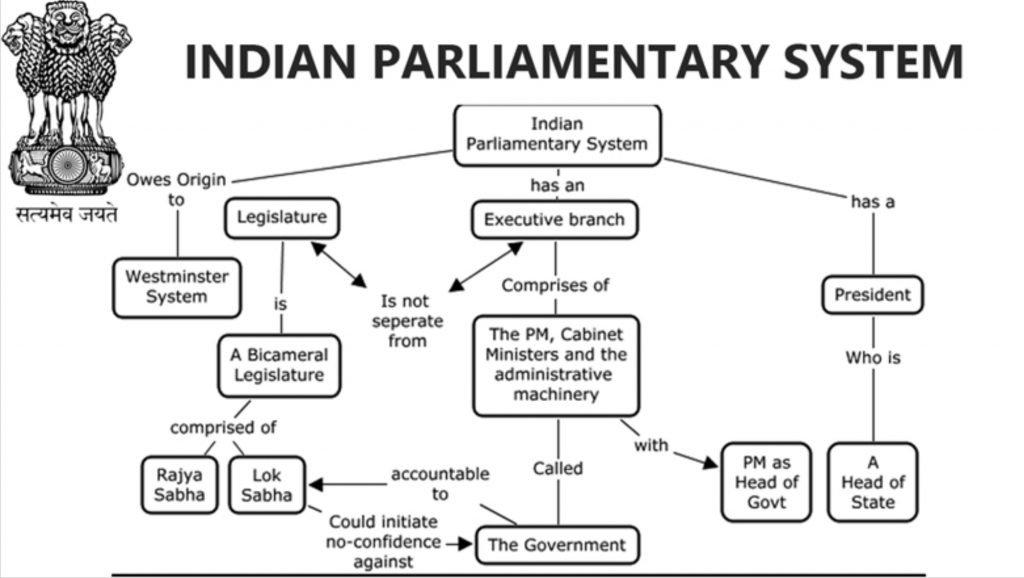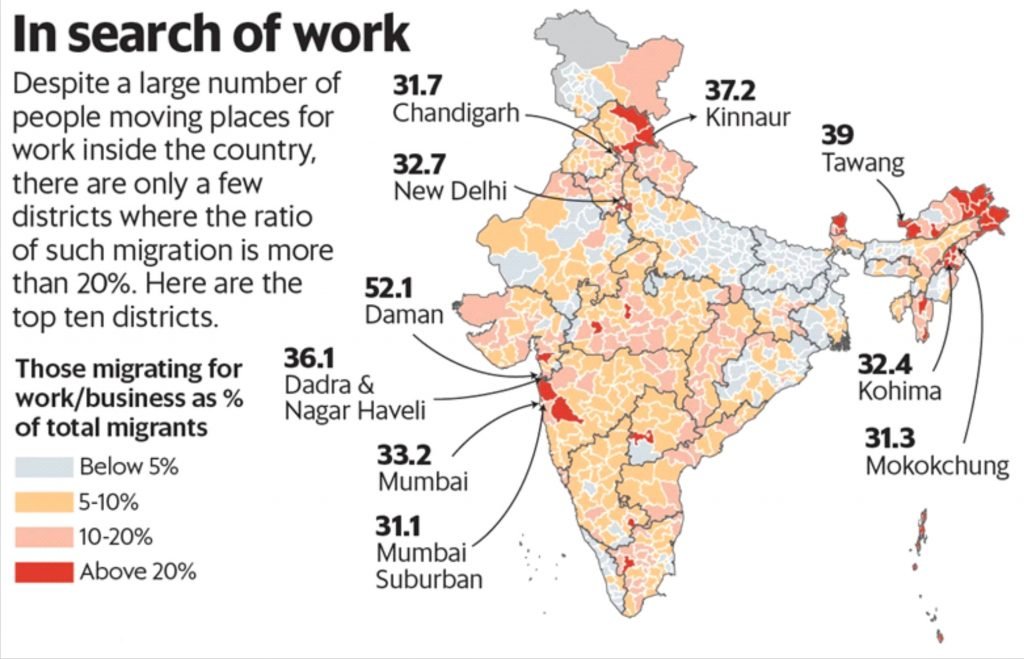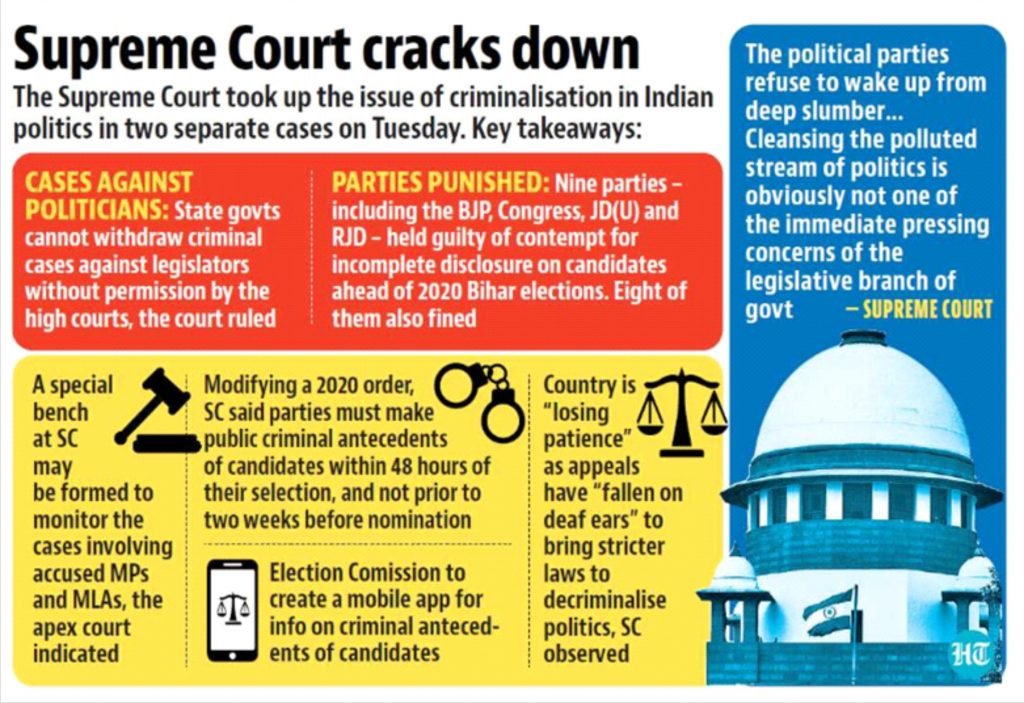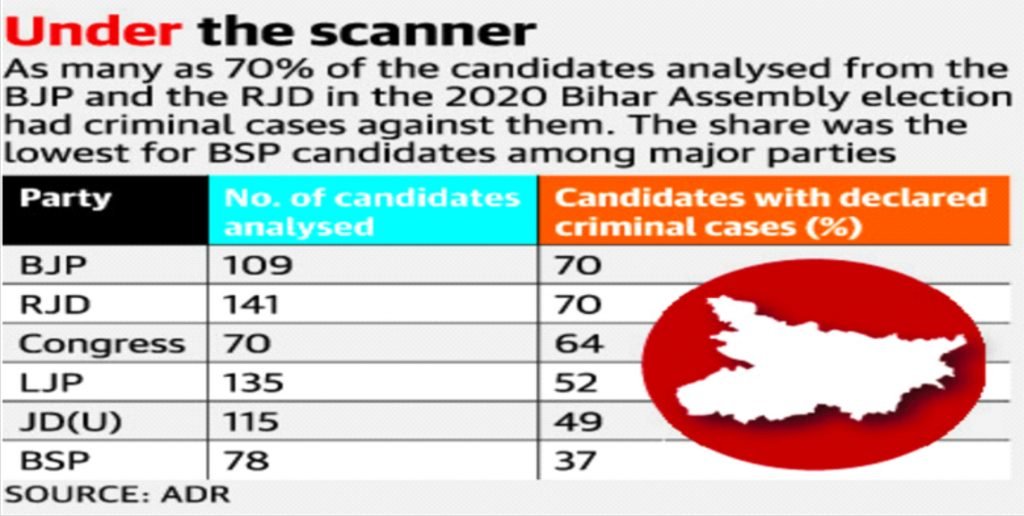Current Affairs (12th August 2021)
Productivity of Parliament (Indian Express)
GS 2 : Indian Polity
Context:
- Parliament’s Monsoon Session ended two days ahead of schedule. From the time the Session began on July 19, Opposition parties had disrupted both Houses over the government’s unwillingness to allow discussion on the Pegasus snooping scandal, the farmers’ protests, and the rise in prices, especially of auto fuels.
- According to PRS Legislative Research data, the Monsoon Session was the fourth least productive Lok Sabha session of the last two decades, with a productivity of just 21 per cent. Rajya Sabha logged a productivity of 28 per cent, its eighth least productive Session since 1999.

Most disrupted Sessions:
- According to PRS Legislative Research records since 1999, the worst Session in terms of productivity for both Houses was the Winter Session of 2010.
- The productivity of Rajya Sabha in that Session plunged to a mere 2 per cent; Lok Sabha did marginally better at 6 per cent.
- For Lok Sabha, the Winter Sessions of 2013 (separate Telangana state) and 2016 (demonetisation of high-value currency notes) were the second worst-hit in terms of productivity.The productivity of Lok Sabha was a mere 15 per cent both in 2013 and 2016.
- The Budget Session of 2018 witnessed a productivity of 21 per cent in Lok Sabha. The second part of the Session was completely paralysed.
- Earlier, in the Monsoon Session of 2012, Lok Sabha had seen a similar productivity of 21 per cent. It faced disruptions over the allocation of coal blocks.
- For Rajya Sabha, the Budget Session of 2019 — the last of the 16th Lok Sabha — was the second worst in terms of productivity: 7 per cent over issues ranging from the Rafale fighter jet deal to the Citizenship (Amendment) Bill.
- The third worst session for Rajya Sabha productivity was the Monsoon Session of 2015 — 9 per cent, as the Vyapam scam and the Lalit Modi controversy turned the House turbulent. Lok Sabha too was disrupted, but it managed to clock a productivity of 48 per cent.
- The Upper House had seen massive disruptions during the first Session of the 14th Lok Sabha in 2004 (17 per cent), the Winter Session of 2016 (18 per cent), the Winter Session of 2013 (25 per cent), the Budget Session of 2018 (27 per cent) and the Monsoon Session of 2012 (28 per cent).
The difference this time:
- Even though the Monsoon Session was badly hit in terms of productivity, and the time spent on discussion and passage of Bills came down drastically, the government did manage to push through a large volume of legislation.
- According to PRS data, Lok Sabha took only 34 minutes on average to pass a Bill, while Rajya Sabha did it in 46 minutes.
- Limited Liability Partnership (Amendment) Bill, 2021, were passed within five minutes. Only the OBC Bill was discussed for more than an hour in both Houses.
- In comparison, the current Lok Sabha as a whole has so far spent 2 hours and 23 minutes on average discussing a Bill; Rajya Sabha has spent 2 hours on average.
- While Lok Sabha sat for 21 hours and 14 minutes in the Monsoon Session against the stipulated time of 96 hours, thus losing 74 hours and 46 minutes to interruptions, as many as 13 Bills were introduced and 20 Bills were passed like The Constitution (One Hundred and Twenty-Seventh Amendment) Bill, 2021; The Insolvency and Bankruptcy Code (Amendment) Bill, 2021; The General Insurance Business (Nationalisation) Amendment Bill.
- Rajya Sabha sat for 28 hours and 21 minutes against the scheduled time of 97 hours and 30 minutes, losing 76 hours and 26 minutes to interruptions. The House passed 19 Bills; four Bills were introduced.
Illegal migration (Hindustan Times)
GS 2 : Indian Polity
Context:
- According to the latest Union Home Ministry report, Rohingya migrants indulging in illegal activities.
About:
- The foreign nationals who enter the country without valid travel documents are treated as illegal migrants.
- Accurate data regarding the number of such migrants living in the country is not Centrally available.

- The Ministry said the Centre had issued instructions to the State governments and Union Territory administrations, advising them;
- To sensitise the law enforcement and intelligence agencies to take appropriate steps for prompt identification of illegal migrants.
Close Tracking:
- They needed to be restricted to specific locations as per law.
- Their biographic and biometric particulars captured and any fake Indian documents issued to them cancelled.
- Legal proceedings, including initiation of deportation process, should be launched.
Indian Refugees Law:
- India is not a signatory to the 1951 UN Convention relating to the Status of Refugees and the 1967 Protocol thereon.
- All foreign nationals (including refuge seekers) are governed by the provisions contained in:
- The Foreigners Act, 1946;
- The Registration of Foreigners Act, 1939;
- The Passport (Entry into India) Act, 1920 and
- The Citizenship Act, 1955, and rules and orders made thereunder.
Advent of criminals in politics (The Hindu)
GS 2 : Indian Polity
Context:
- The Supreme Court recently warned Parliament that the nation is losing patience with the advent of criminals in politics even as it imposed fines on major political parties for.
SC Observation:
- Cleansing the polluted stream of politics is obviously not one of the immediate pressing concerns of the legislative branch of the government.
- The Supreme Court’s repeated appeals to legislators to amend the law to weed out the criminals amidst them had fallen on deaf ears.
- The court observed that it did not take political parties much time to flout its February 2020 judgment;
- Which directed them to prominently publish the criminal antecedents of their candidates in newspapers and on social media accounts, including Twitter and Facebook.
- Eight months from the February judgment, in the run-up to the Bihar Assembly election in October-November last year.
- These parties had already subverted the verdict by either publishing inadequate information about their candidates’ criminal antecedents or by cleverly printing them in obscure newspapers.
- Bench stated that publishing the details of their candidates may even benefit the parties in the Indian scenario where political vendettas were a reality.
- It finally cited that the court hands were tied from taking any further action.
- It cannot transgress into the area reserved for the legislative arm of the State.
- It can only appeal to the conscience of the lawmakers.
- Various State governments have resorted to withdrawal of numerous criminal cases pending against MP/MLA by utilising the power vested under Section 321 CrPC.
- The court agreed to several suggestions given by amicus curiae i.e.;
- A freeze on the transfer of judicial officers trying criminal cases involving lawmakers.

The Supreme Court Direction:
- The court had directed political parties to publish the criminal history, if any, of their election candidates on the homepage of their websites.
- It should be under the caption ‘Candidates with criminal antecedents’ within 48 hours of their selection.
- In a series of directions to make the right of information of a voter “more effective and meaningful”;
- The court further ordered the Election Commission of India to launch a dedicated mobile app for voters to get details of the criminal history of the candidates at the touch of a button.
- The Commission should also form a separate cell to monitor political parties on their compliance with the court’s judgment.
- The court said any violation on the part of a political party, if brought to its attention by the Election Commission, would be viewed “very seriously”.
- It also directed that a criminal case against an MP or MLA can be withdrawn only after getting the consent of the State High Court concerned.
- No prosecution against a sitting or former MP/MLA shall be withdrawn without the leave of the High Court.
- The power under Section 321 CrPC is a responsibility which is to be utilised in public interest.
- It cannot be used for extraneous and political considerations.
- This power is required to be utilised with utmost good faith to serve the larger public interest.
- The court mulled the formation of a Special Bench to monitor the progress of investigation and trial of criminal cases involving politicians.
- To ensure expeditious disposal of pending cases;
- It is necessary for this court to direct the officers presiding over Special Courts or CBI Courts involving prosecution of MPs or MLAs to continue in their present posts until further orders.
- This direction, barring transfer of Judicial Officers, will be subject to their superannuation or death.
- Adopt video conferencing facilities to examine witnesses and for the release of funds to establish and improve virtual court facilities.
- The Bench gave the Centre a last opportunity to submit detailed reports on the cases registered by CBI, ED and other central agencies against MPs and MLAs.
- These cases range from corruption to money laundering.


